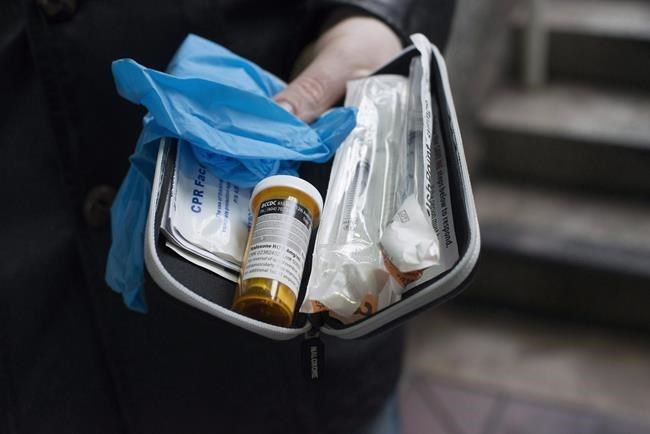The province’s mental health and addictions minister, Sheila Malcolmson, wants Ottawa to decriminalize possession of small amounts of illicit drugs for personal use. B.C.’s chief coroner Lisa Lapointe agrees, as does the provincial health officer, Dr. Bonnie Henry, and the Canadian Association of Chiefs of Police.
In this context, “decriminalizing” means that criminal sanctions, like a prison sentence, are removed, but possession could still result in non-criminal penalties, such as fines.
Trafficking and making illicit drugs would remain prohibited.
We have to say at the outset that we are sympathetic with the motives and intent behind this proposal. The strongest argument in its favour is that the current regime of criminal sanctions has been a miserable failure.
B.C. recorded 1,716 fatalities from illicit drug overdoses last year, the overwhelming majority involving men between 19 and 59 most of whom died in their homes. Of these deaths, 122 occurred in Victoria.
Provincewide, that death toll exceeded the fatalities last year caused by road accidents, suicides and homicides combined. Indeed, it exceeded by a large margin all of the COVID-19 deaths in our province to date.
If the war on drugs were a real war, we would long ago have hoisted the white flag and surrendered. Whatever objections there are to this proposal, that fact must be faced.
Nevertheless, there are challenges to be met if decriminalization is chosen.
First, if illicit drugs such as fentanyl become more readily available, might that not lead, perversely, to an increase in overdose deaths?
Could it be that by withdrawing the threat of criminal proceedings, and the associated stigma, some people might be encouraged to experiment with these drugs who would otherwise have stayed away?
Second, this proposal can only succeed if far more sophisticated and intensive treatment options for addicts are set up.
Very few clinics in B.C. currently offer a full range of pharmaceutical and rehabilitation services.
The Crosstown Clinic in Vancouver, operated by Providence Health Care, is one such facility. Beyond dispensing prescription heroin to help clients step down from more addictive drugs, it offers assistance in finding housing and employment. Counsellors and social workers are available to help clients reintegrate into the community and build a healthy lifestyle.
However, as it stands, the clinic can only treat in the neighbourhood of 200 clients a year. Yet by some estimates, between 3,000 and 6,000 people provincewide will need this form of integrated therapy if illicit drugs are decriminalized.
This is an enormous undertaking. It costs about $27,000 to treat each client at Crosstown. If services of this kind were extended to the full range of eligible clients, the all-in cost would be somewhere between $80 million and $160 million each year.
Is the provincial government prepared for this?
And more than money will be required. Scores, if not hundreds, of new staff members would be needed to operate these facilities. Can they be recruited?
The issue comes down to this. Research in several European countries, Denmark and Switzerland among them, shows that the kind of extended treatment offered by clinics like Crosstown does work.
That is to say, the majority of clients are helped to step away from addiction. The same research also shows that decriminalization does not automatically lead to a surge in the consumption of illicit drugs.
In addition, there are benefits to the broader community, in terms of reduced crime rates, and relieving the strain on law enforcement agencies.
But, and this is the key, those results are only achieved if the necessary treatment programs are put in place before decriminalization occurs.
We need to hear that our governing bodies understand this, and are fully prepared to take the necessary measures. Otherwise, little will be gained.



